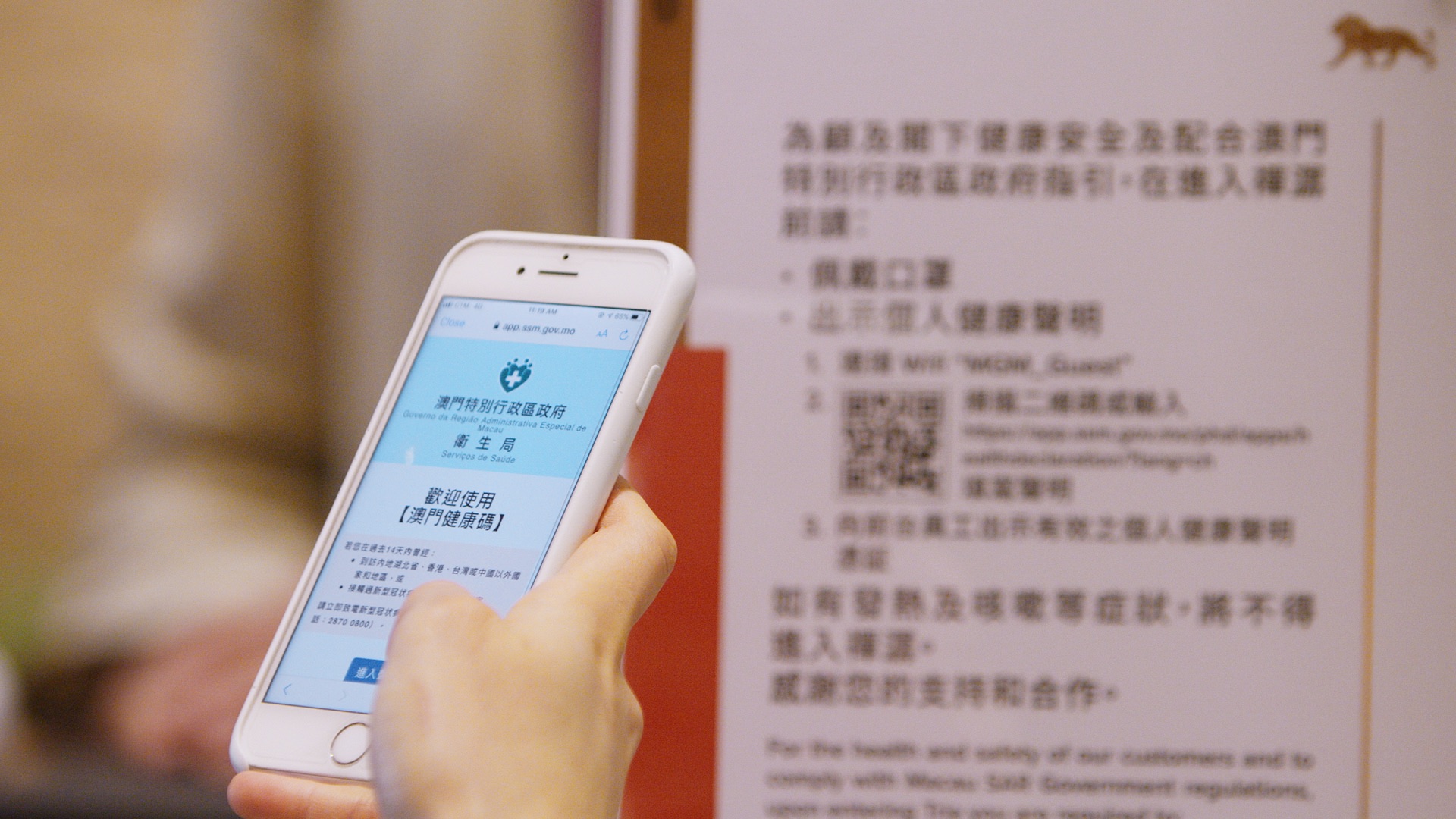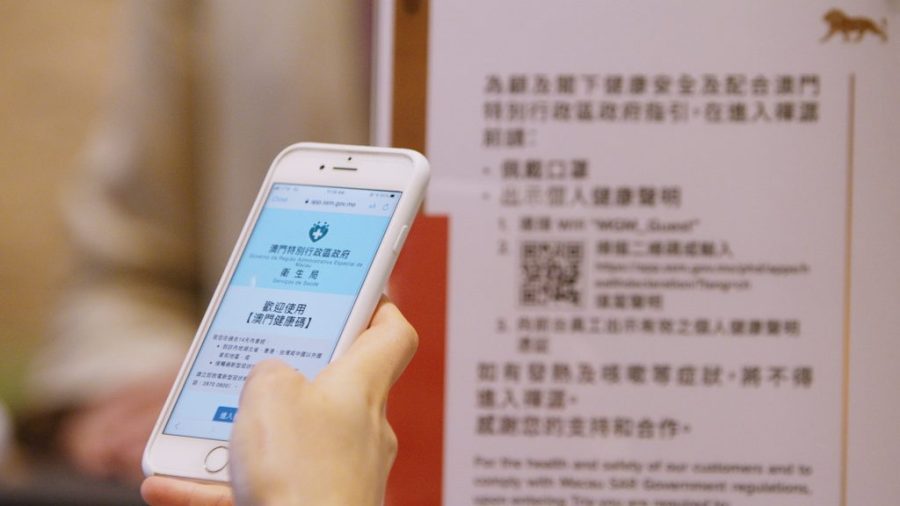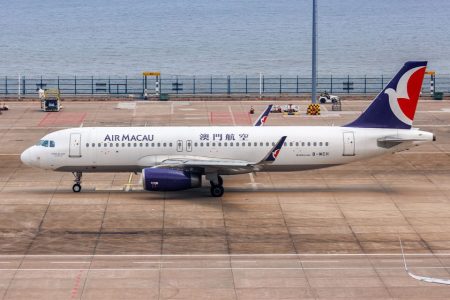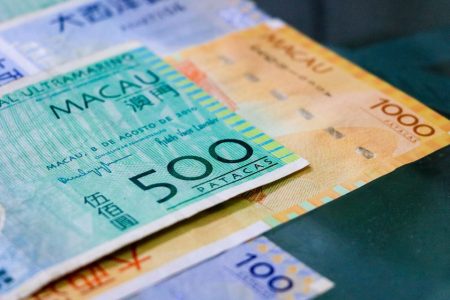The novel coronavirus (Covid-19) broke out and a war without fire between humanity and a deadly infectious virus erupted, putting health workers around the world at the forefront of the battle to protect citizens.
The fight in Macao started in late January, just when families and friends were gathering to prepare and welcome the Lunar New Year, the most important event on the Chinese calendar.
Containing the spread
Just a day after the Health Bureau (SSM) announced confirmation of the first Covid-19 patient in Macao on 22 January, Chief Executive Ho Iat Seng, who had just taken office a month before, told the public that Macao was entering an anti-epidemic state, calling on all citizens to wear a facemask.
For this, the government launched a facemask guarantee scheme for Macao residents and non-resident workers, where each person could buy 10 facemasks from the government’s stock for MOP 8 every 10 days. The government has recently changed the purchase schedule to every 30 days.
To facilitate the distribution process and prevent scalping, the bureau installed a computerised system for ID registration that they set up within 24 hours at all sales points, and created a section on its website dedicated to anti-epidemic news and facemasks information.
In addition, residents were urged to stay at home and cut down on non-essential travel. The government also cancelled all its Spring Festival activities, hoping associations would follow suit.
Early diagnosis is key in this battle against the virus, and the SSM’s Public Health Laboratory has been carrying out tests to help doctors give the most suitable treatment in the early stages that can effectively contain the virus, and lower the risks of patients becoming severely ill.
Moreover, a well-prepared emergency department is ready to help ease the strain on the hospital bed count and bring the risks of infection for medical staff to the lowest.
As some patients have mild symptoms or are even asymptomatic, it is difficult to find them if diagnosis is solely based on clinical symptoms, which poses quite a big challenge in epidemic prevention.
By adopting widespread use of nucleic acid tests (NATs), accompanied by chest CT scans when needed, the bureau can determine who the infected people are and quickly put them in quarantine to get treatment. With this strategy, risks of a community outbreak have been significantly reduced.
Supporting the frontline
Supporting medical workers on the frontline are Public Security Police (PSP) officers who monitor the shuttle bus service that transports people to designated venues to undergo medical observation, follow up with the different needs of those people and maintain order at the venues, carrying out their duties like border patrol soldiers.
At the peak, the venues received 5,000 people a day, where each person underwent an eight-hour medical observation with four temperature checks, which meant medical staff recorded the checks 20,000 times a day, and to cope with the workload, the bureau called for volunteers with medical backgrounds for support.
The call caught the attention of retired and current professional medics to join the frontline to the fight against the epidemic together as their mission. A group of young medical workers also volunteered, showing the sense of responsibility among the younger generation.
The establishment of the two medical inspection stations was primarily aimed at people entering Macao from high-risk infection areas, and for local residents who are cross-border commuters who would be sent to the Conde de São Januário Hospital Centre for further inspection if suspected Covid-19 cases were found.
The whole process has enjoyed full cooperation between different government entities where the Health Bureau handles medical inspections, the PSP and Customs Services maintain order, the Macao Government Tourism Office (MGTO) does the logistics, the Sports Bureau (ID), Marine and Water Bureau (DSAMA) are responsible for the venues management, and the Social Affairs Bureau (IAS) is in charge of distributing food and resources to the people at the venue and providing them with psychological support.
Quarantine hotels, returning residents
The virus has spread globally through the breathing-in of tiny airborne particles generated by those who are infected or by direct physical contact, and since there is still no vaccine available, the government initially had imposed a 14-day quarantine measure at home or at designated hotels for local residents returning from high-risk areas and for those who have close contacts with a patient. Anyone who leaves their place of quarantine bears full criminal responsibility and must also undergo mandatory quarantine.
People who undergo home quarantine need to obey the SSM’s regulations and guidelines, and abide by the Infectious Diseases Law where the infected person cannot leave his or her home. There will be police patrols and inspections daily and the person in home quarantine needs to obey the laws and cooperate with the government’s epidemic work.
Mid-March saw the city’s 11th Covid-19 patient, which also marked the start of the “second wave” of the epidemic. It was at a time when the virus spread to the rest of the world, triggering many local residents who were travelling overseas or studying abroad to return to Macao. Because the virus situation overseas was worsening, all returnees were required to go into quarantine at designated hotels and take nucleic acid tests upon entering Macao.
On choosing quarantine hotels, the bureau first assesses the ventilation system of the hotels to ensure that it is suitable to be used for medical observation. If the hotel has the right conditions, the bureau meets with hotel representatives to discuss in detail environmental hygiene, food safety and waste collection rules for hotel employees to follow while keeping to strict anti-epidemic protocols.
One of the big missions in the fight against the virus was sending a chartered flight to bring home Macao residents who were in Hubei at the time.
Twelve prefecture-level cities in Hubei went into lockdown on 24 January, following Wuhan the day before, stranding many Macao residents visiting the province at the time. Through close communication and evaluation with the respective authorities, the government decided to bring home Hubei-stranded Macao residents by chartered flights in March.
The chartered flight took place on 7 March that saw 57 Macao residents safely returned to Macao, and on 21 March, the residents and staff members on the flight all passed the medical observation smoothly.
Tracking
Since the first Covid-19 case in Macao, the bureau has been tracking each patient’s travel history to identify all those who had close contact with the patient. Once identified, close contact persons would undergo 14-day quarantine at designated venues to reduce the risk of a community outbreak.
Details of the travel history were also made public for people to know the latest development of the novel coronavirus and be aware of their own health so that they could seek medical treatment if they felt unwell.
This tracking process was especially helpful during the “second wave” of the outbreak in the city where all of the confirmed cases were imported – those who were returning from the mainland or overseas.
As of today, the city has had 46 cumulative confirmed cases of Covid-19, and all the patients have meanwhile recovered and discharged from the hospital. Of the 46 cases, 44 were imported, and two were classified as cases connected to the imported ones. There are no recorded deaths from the disease, and no medical workers have been infected.
Macao has been able to put the Covid-19 count to “zero patients, zero deaths, zero cases of infections in hospital and zero community outbreak” and maintain the zero count because the government has worked in unity, and also because of the unconditional contributions by medial workers who have taken the key role in the fight against the virus.
Invaluable experiences
Since the severe acute respiratory syndrome (SARS) outbreak in 2003, Macao has been able to overcome many types of infectious diseases and has accumulated invaluable experiences. When faced with Covid-19, the bureau was well prepared. Based on a reliable public health system to contain the spread of the virus and protect medical workers from being infected, the bureau has won the trust of civil society and medical workers alike.
SSM Director Lei Chin Ion said that looking back on the novel coronavirus epidemic, the bureau was ready for a battle and was taking quick action, putting in great effort in border inspections, virus prevention, diagnosis and treatment as well as community awareness promotion, not to mention the work staff have done in control measures, treating, curing and testing, as well as workflow and back-up.
Through the continuous exchange of novel coronavirus information with the mainland and other nearby regions, and keeping a close watch on the situation in the rest of world, the bureau was able to devise an anti-epidemic plan suitable for Macao, and with the support and cooperation of civil society and residents, all measures have worked efficiently.
For this virus, frontline medical workers volunteered to be part of the fight. The bureau has kept in close communication with these medical workers and has established a social media group with over 500 medics where the bureau can directly learn about problems the health workers face and their needs and together find a solution, which fully brings out the benefits of a team spirit.
Dr Lei Chin Ion publicly thanked medical workers for their effort and contribution, pointing out that they are humans who are also afraid of getting infected.
“Medical workers said they’d give their life for us, I told them they don’t need to give their life for this, instead just be cautious and be protected,” Lei said then.
Since the Health Bureau’s use of IT applications, border management, community protection and treatment of patients as well as the drawing-up of contingency plans has been effective, it will carry out an evaluation in due course for further development.
However, as the novel coronavirus situation is still severe in many countries and regions, Macao is still under threat. That’s why the bureau is urging the public to continue to abide by the government’s guidelines and maintain good hygiene habits, which will contribute to effective anti-epidemic work.
(The Macau Post Daily/Macau News)






